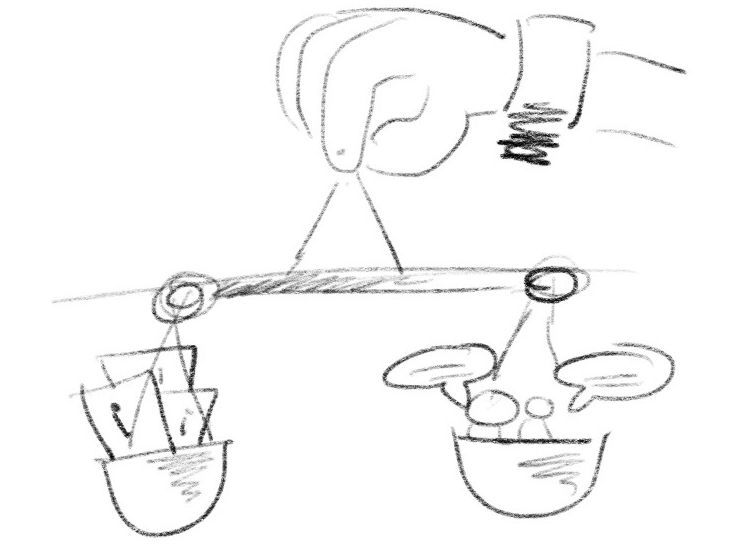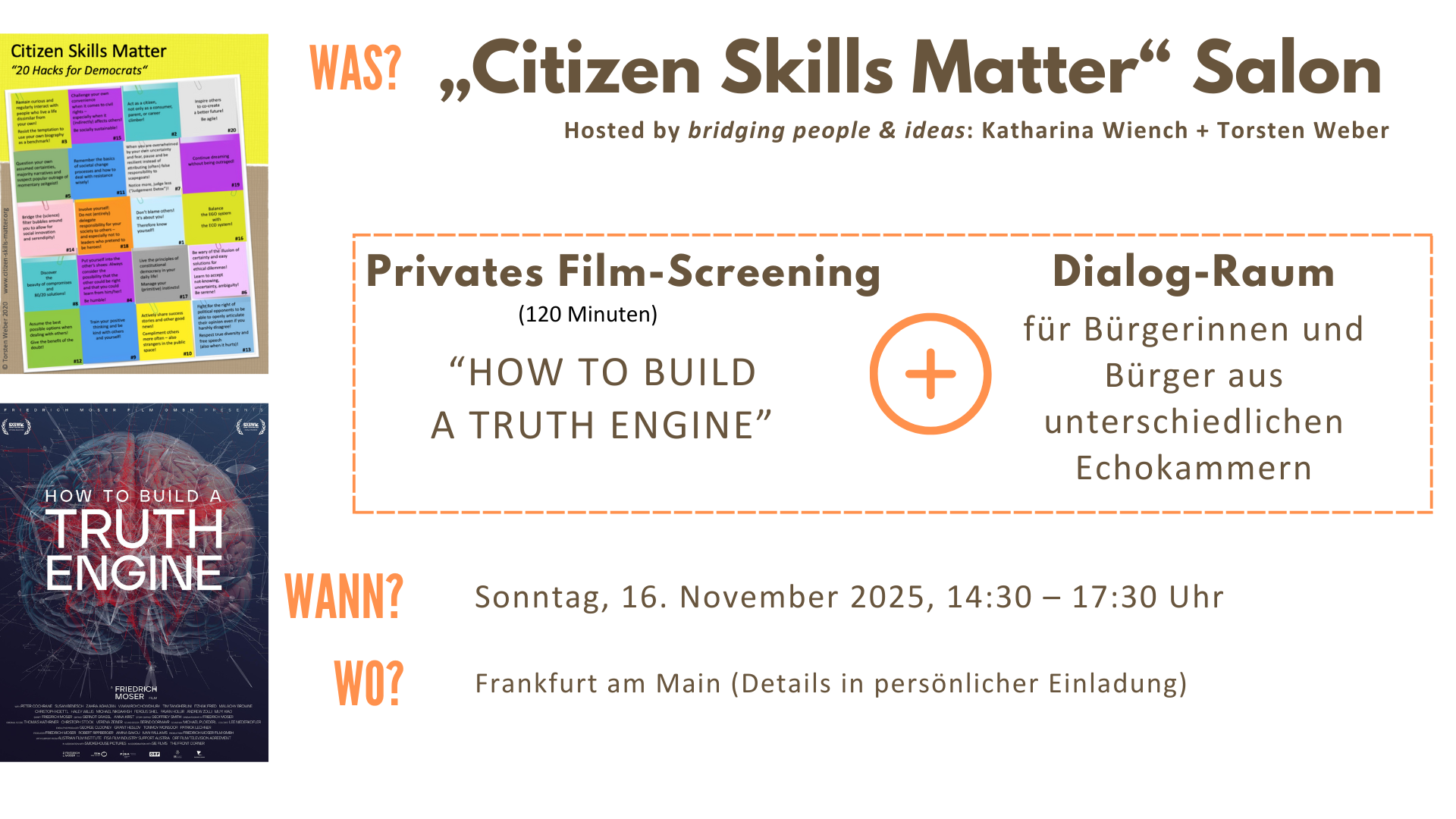Discover the beauty of compromises
1. Januar 2025
Happy New Year 2025
Bold reforms need majorities, skilled citizens, and… compromises!

Compromises allow pluralistic societies to productively channel their diversity into real policies. Some of you may argue that there would be bad and even “rotten” compromises as well and that they sometimes would only help to postpone necessary reforms. And that we would actually need bold and radical reforms now more than ever. Yes, all this is very true! Compromises can indeed only mirror the willingness to change of the electorate at a given moment. In a way, they are just intermediate steps. Any reform can only be sustainably successful if majorities support the painful changes inherently coming with them. Therefore, compromises are always incomplete and only temporary and hence agile by design. And they are little successes to be acknowledged and sometimes even to be celebrated when they serve as a bridge between ideological silos in society. Human beings are varied in the end, with different preferences, interests, wishes, and mindsets. Hence, if we do not fancy a dictatorship of only a few over many or a self-proclaimed “expertocracy” government, we must venture compromises.

Yes, compromises demand a lot from everyone involved: They are painful and bumpy, and they always take more time than decisions from authoritarian regimes who make us feel good in the beginning, but tear society apart later and have a disastrous, empirical track record in the long-term. Probably, compromises have such a poor reputation, because they can neither embody the analytical rigor nor the moral absolutism of ideological maximum positions which unfortunately dominate in most filter bubbles. As a facilitator in international business and politics, I have a much more positive view on compromises: I am aware of my “déformation professionelle”, but to me, compromises are sometimes even pieces of (social) art which refine the power of ambiguity.

Good compromises require citizens who do NOT behave like consumers. If we want that the politicians we have elected negotiate good compromises for our polity and our communities, and if they shall responsibly consider dilemmas and trade-offs in the face of conflicting objectives, then we must first and foremost try to curb our own primitive instincts: If we devalue every idea to change the status quo with a knee-jerk reflex, if we solely talk about the disadvantages of new suggestions, if we believe that everybody else (except ourselves) is stupid and incompetent, and if we are again and again outraged because of minor details, then we incentivise the negotiators to consciously and rationally sabotage compromises. Because they will then prefer to please these primitive instincts (especially in their respective filter bubbles). With this, we all contribute to making compromises (and reforms) in democracies difficult or impossible. Which then also annoys us, because “nothing moves forward here”… If we as citizens have learned from history, we always take a good look at ourselves first and never stop the life-long training of our own “citizen skills”.
I wish all of us this year a constructive way of dealing with compromises in our life. 😊
Happy New Year 2025!
Torsten
Blog
















